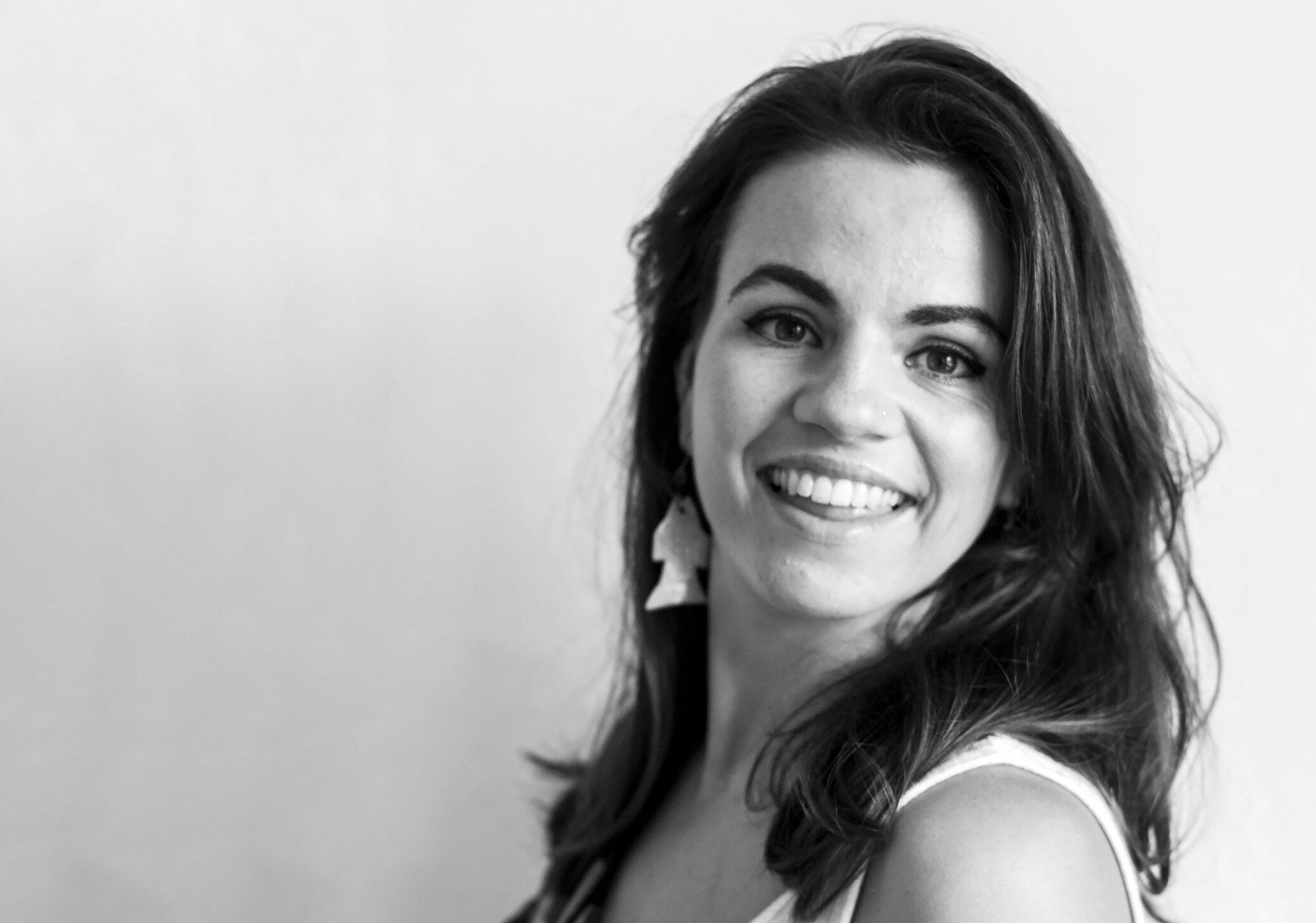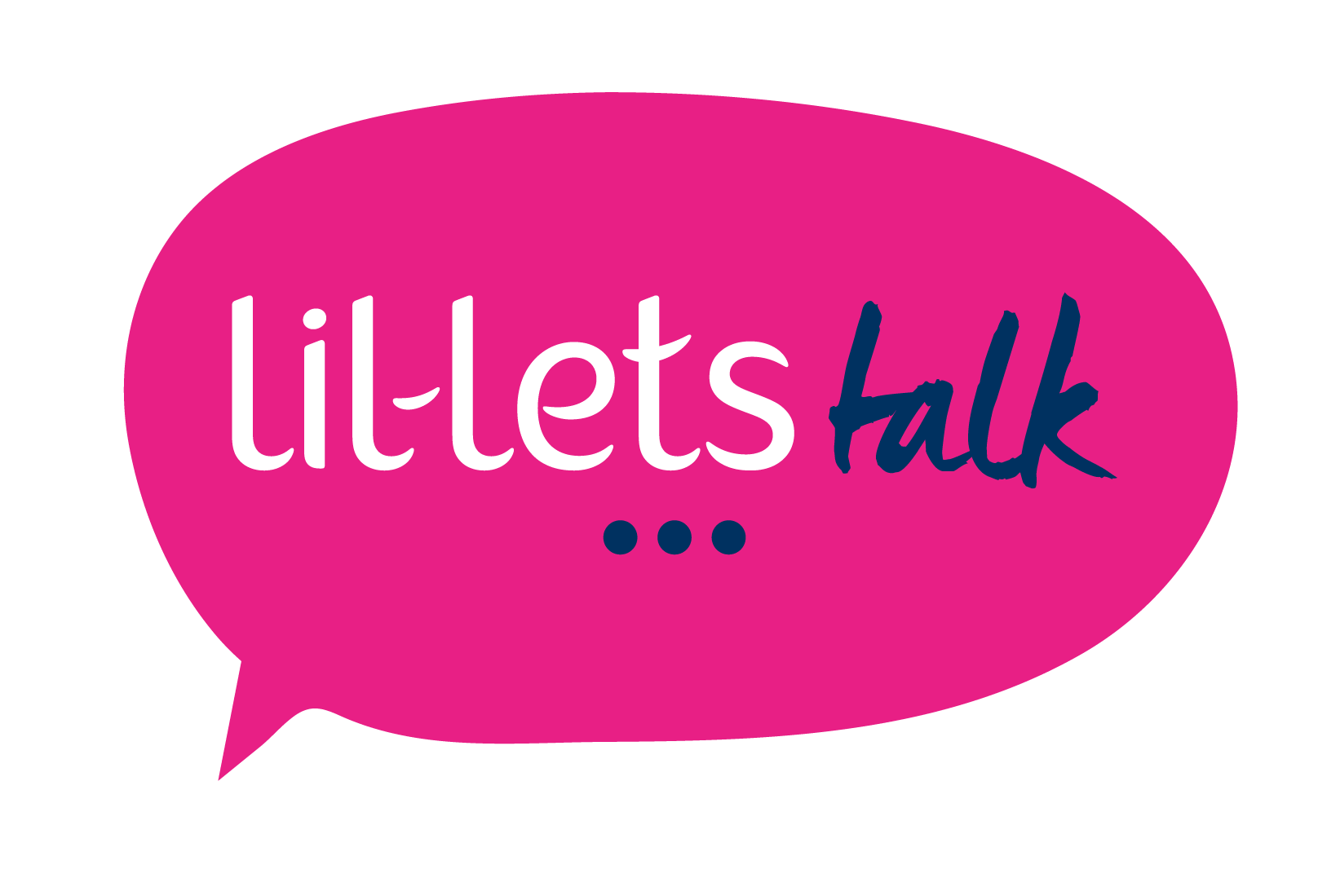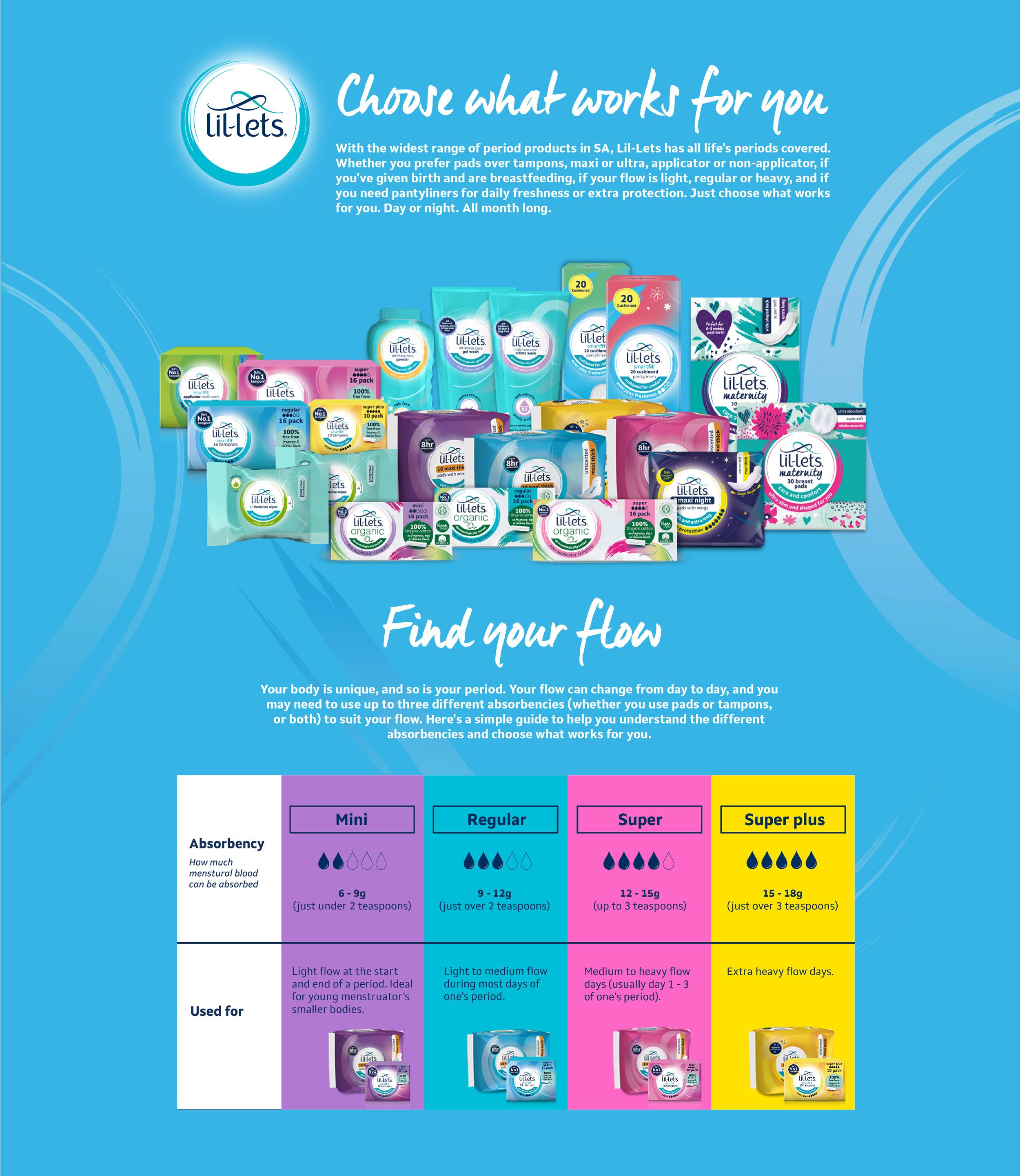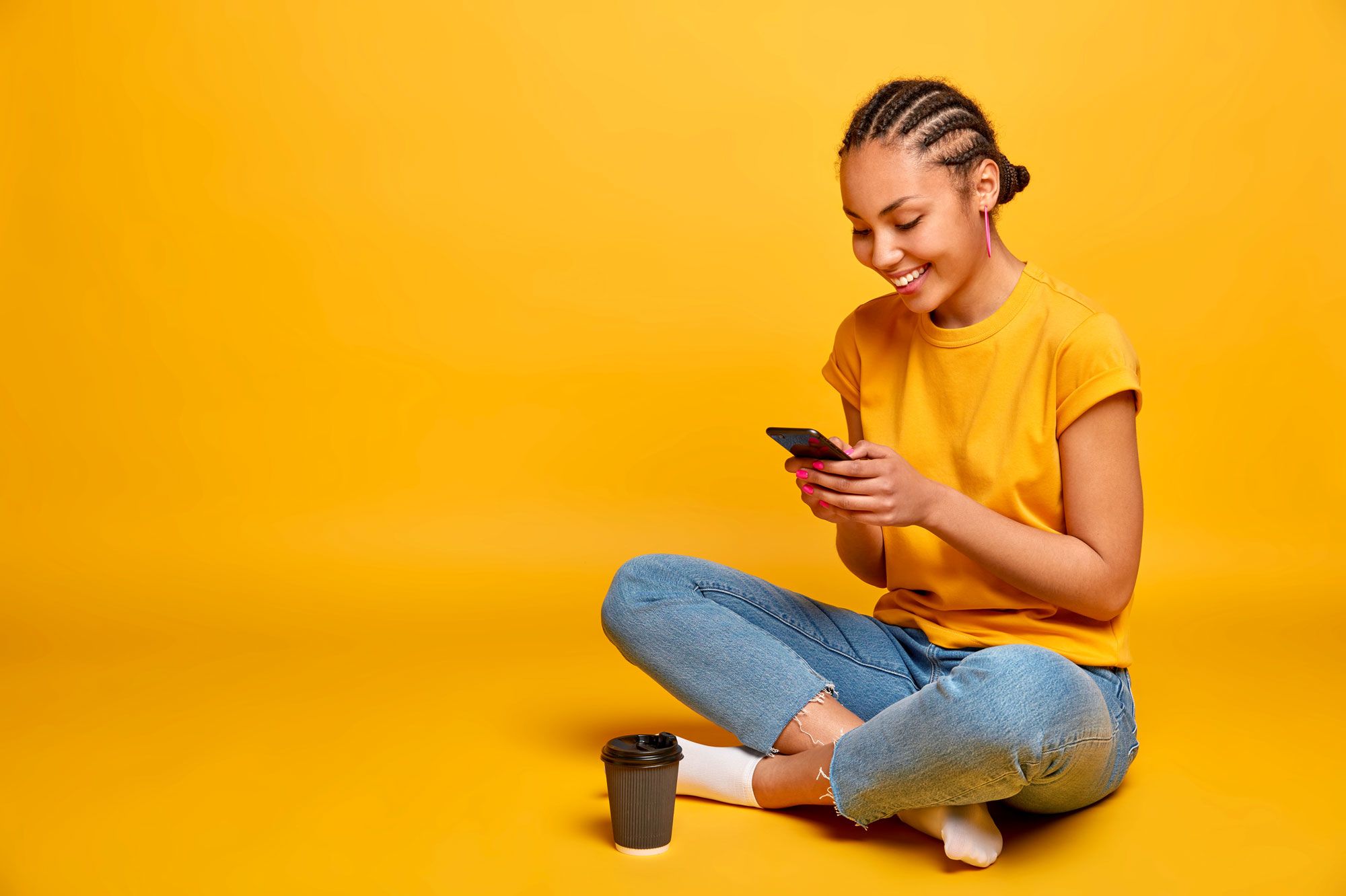
Your Questions. All the answers. Period.
Whatever your question, just ask and you’ll get an expert answer on the Lil-lets Talk platform. The new platform is breaking the silence around periods, and encouraging dialogue between people who facilitate open, honest and empowering discussions across all life stages.
The platform features a panel of experts and community responders with a wide range of experience between them. These community responders are available to answer all questions, ranging from how to manage pre-menstrual stress and ensuring your discharge is within normal ranges to what an irregular period might indicate and the best way to choose what works for you when it comes to period products.
The panel of experts – and your peers on the platform – are on hand to share their own experiences across the full spectrum of our life cycle. Whether you would like more information about fertility, pregnancy, contraception or sexuality, as well as how to choose the right product for your needs, you will find it on the platform. The platform is complementary to the advice from your chosen healthcare professionals.
While much of our experience is universal, we are also all unique so ask your question here:

Dineo Ranaka sparks a generational conversation about ‘taboo’ menstruation
This the first episode of the web series:
When media personality and entrepreneur Dineo Ranaka got her first period, she was not afraid. In fact, she had already been taught about menstruation at school. Aware that this education isn’t accessible to every girl and young woman, she is proud to partner with Lil-Lets, a leading period products brand, to share knowledge and create support structures for people who menstruate.
“Lil-Lets Talk is going to see us sharing and having these conversations,” she explains. Until 1 April, these weekly talks with various experts will take place on Ranaka’s Metro FM show, The Bridge, every Thursday at 9:45am. The experts include Dr Mpume Zenda, Candice Langford, Slindile Mbatha and Gen Putter. There are also Lil-Lets Talk segments at 10:40am every Wednesday in March on The Morning Show with Leigh-Ann Williams on Good Hope FM.
In addition to the radio slots, Lil-Lets Talk with Ranaka will be a video series directed by the award-winning Aliki Saragas-Georgiou. The first video, which premieres on Lil-Lets’ social media today, will see Ranaka get real with her relatives.
“You’ll hear first-hand experiences about menstruation and all that comes with it from my gran, my mum, my niece and me. My gran is 78 years old, my mum is 61 years old, I am 37 and Naledi is 13.”
Having recently started menstruating, Naledi’s lens on this new phase of her life is different from that of the women in her family.
“My niece got the old-school talk from my gran and my mother – that she could now get pregnant and all that,” Ranaka says. “But she got a different talk from her mother [actress Manaka Ranaka], me and our generation. We told her things like she would start getting moody and we taught her about PMS [premenstrual syndrome].
“I crave chocolate when I have my period and I get really gassy, so I told her about that too. Her sister, Manaka’s first-born [Katlego], also had a discussion with her and gave her a whole different talk.
“She spoke about the philosophy behind your [menstrual] cycle, how magical it is to start your period and how her body is so powerful and unique. There are so many women in our family that my niece was shielded from feeling shame about menstruating. She got the best of all worlds.”
Ranaka’s grandmother was not so lucky, and this is also explored on the show. “I learnt about my grandmother’s first period when I was interviewing her and it was sad,” the reality TV star shares. “I discovered so much about her and my mum [during this campaign]. That’s why, as a co-producer on the show, I wanted to break the discomfort that most black households have around menstruation.
“I can only speak of my black experience, but I wanted to play my part in what some black families think is a ‘burdensome’ conversation. I use that word cautiously because I think some people see it like that because it comes from fear.
“It’s like some people are afraid to engage their daughters in this [conversation] and think of them as independent but vulnerable beings.
“But it’s something beautiful to experience and it needs to be discussed so we can break the shame and step away from making it all about pregnancy. Not every person who experiences a period is interested in having children. We can’t just assume things about them.”
When it comes to menstruation, conscious parenting can make the world of difference. Ranaka had the benefit of being taught about menstruation in school, but she also had the enveloping love of her parents to help her not feel ostracised once her period started.
She remembers her first period: “My mum was travelling for work and my dad was home with us. I got my first period in the middle of the night. When I woke my dad up to tell him, he took my sheets and put them in the bathtub, where he was going to wash them.
“He then gave me some advice – to roll up a lot of toilet paper and said: ‘Place it on your panties like so. I’m going to the store to get you some sanitary products.’
“When he came back, he said: ‘You know how to read, so follow the instructions [on the package].’ He was the first person I told [about my period] and the first person who got me sanitary products.”
Ranaka says: “It will encourage people to think of themselves first and understand what the menstrual cycle is [about].
“These talks will live online. I think it’s very clever that Lil-Lets is taking advantage of the digital wave and how we now live. You can watch while you’re in bed or at work or after bingeing your favourite content.”
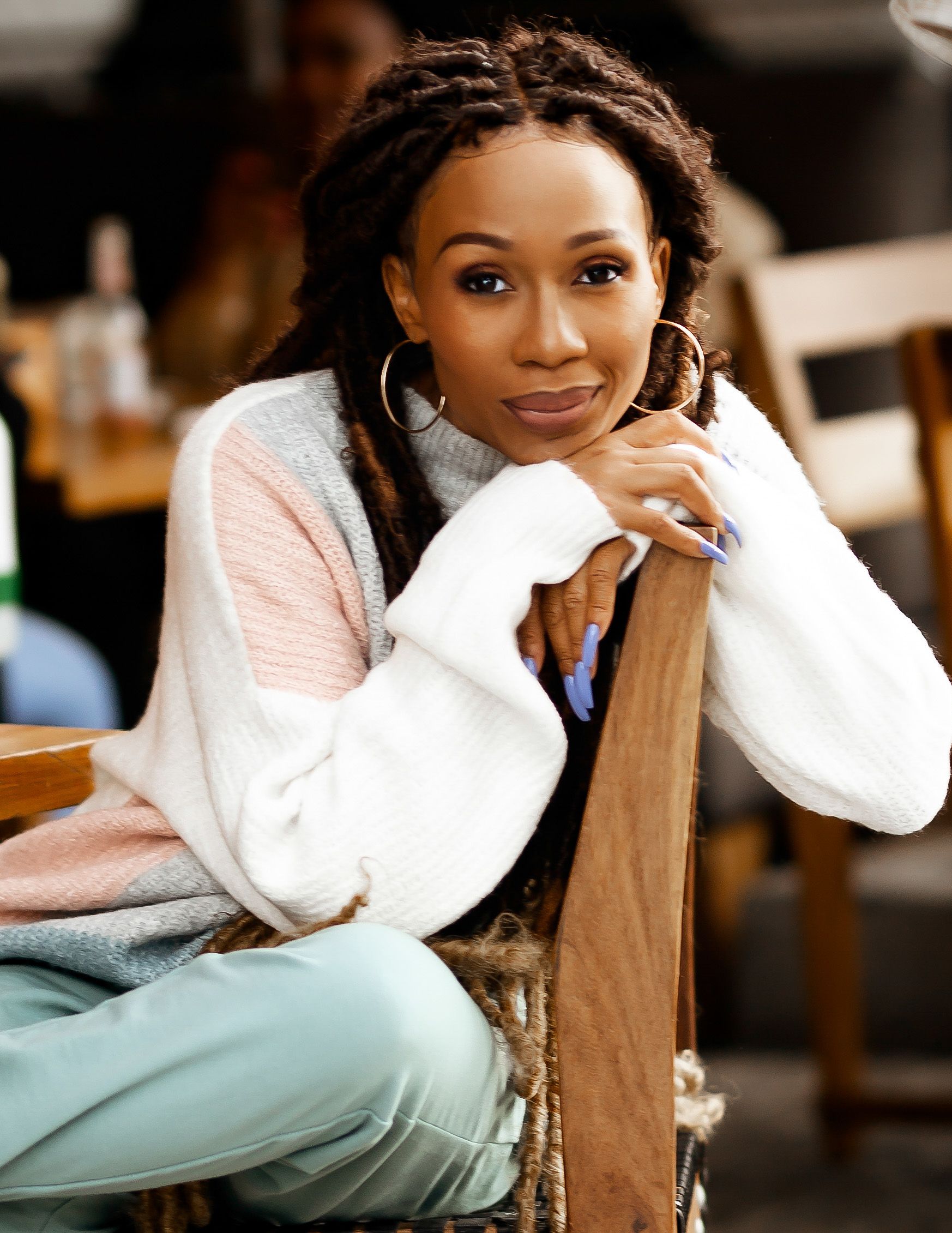
Photo by: Sfundo “OK” Majozi
Photo by: Sfundo “OK” Majozi
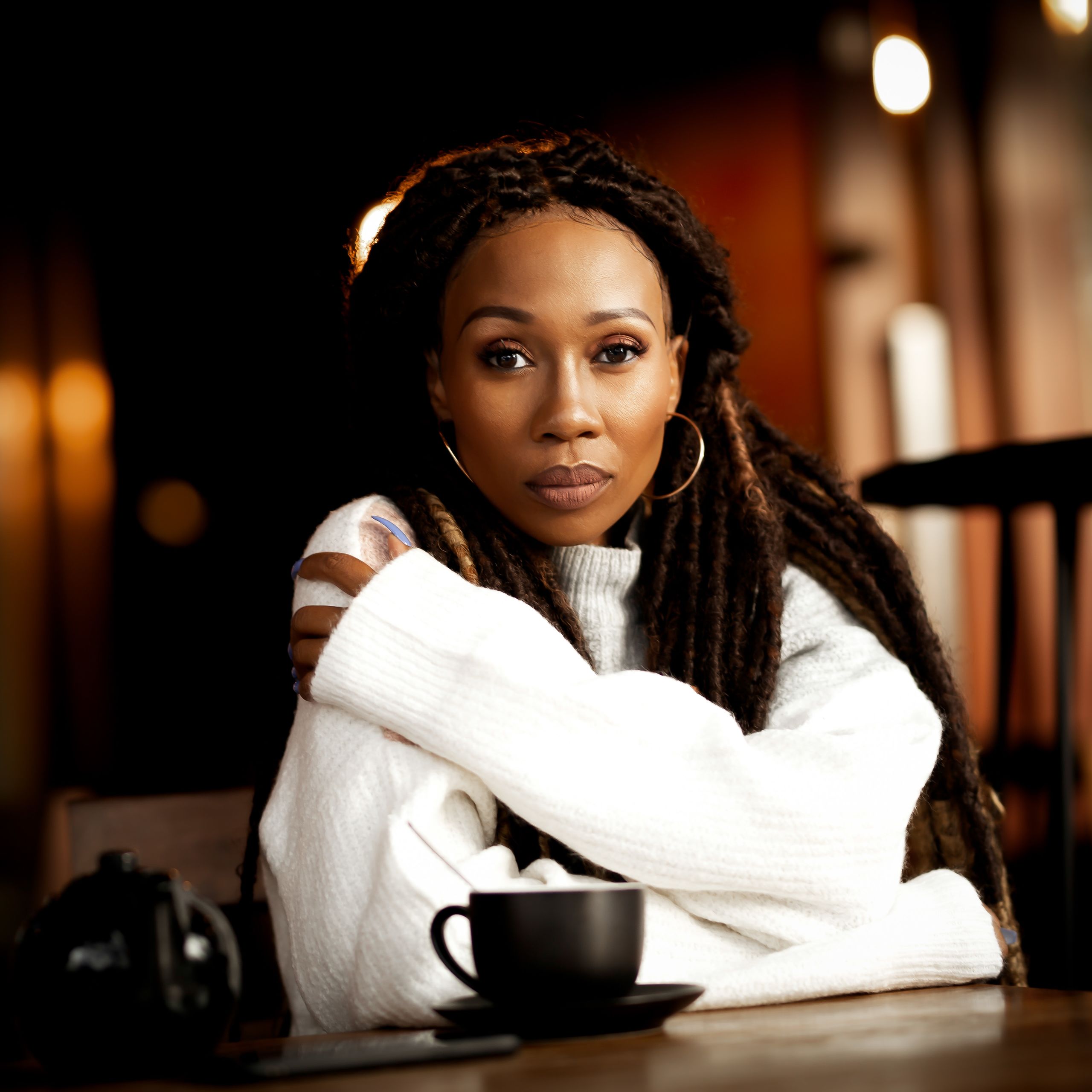
Photo by: Sfundo “OK” Majozi
Photo by: Sfundo “OK” Majozi
Frequently asked questions
The most powerful way we can bust the myths around menstruation is to share our knowledge and experience to create an open conversation. To make our menstruation experiences easier, one of the most important elements is finding the right sanitary products to suit your needs.
Here are five of the platform's frequently asked questions.
Q: Can contraceptive pills cause any harm if one skips the inactive pills in the pill pack and immediately starts a new pack in order to skip one’s period?
A: Generally, it is safe to use your contraceptive pill to skip or delay your period. In fact, your ‘period’ on the pill isn't a true period, it’s withdrawal bleeding because your placebo pills don’t contain the same active hormones as the rest of your pack. When you’re on the pill, your body is not building up the lining of your uterus, so there’s no risk of getting ‘backed up’. However, if you skip your period for a few months in a row you could expect some breakthrough (or unpredictable) bleeding in the middle of your cycle. With that being said, it does sometimes depend on the pill you are taking, so to be 100% sure, I’d check in with your doctor – Rachael
Q: What is PMS exactly and how severe can it get?
A: PMS stands for premenstrual syndrome, it’s something that people who menstruate can experience before or during their period, and it’s caused by hormonal changes that occur during the menstrual cycle. It’s a combination of physical and emotional symptoms that occur before a person’s period starts. Some people experience these symptoms one or two weeks before their period, while others experience them a few days before their period. Everyone experiences PMS differently, but some of the common symptoms are sore breasts, bloating, fatigue, irritability, and feelings of sadness. If your symptoms are very severe, you might have PMDD rather than PMS. PMDD is an endocrine disorder brought on by the luteal phase (days 15–28) of the menstrual cycle. Symptoms tend to ease during a person’s period, but that doesn’t change PMDD’s overall negative effect on mental health. PMDD causes more intense feelings of sadness than PMS and is considered a mental health issue. – Grethe
Q: Can tampons 'break' my virginity?
A: No, a tampon cannot ‘break’ your virginity. It’s important to remember that virginity is a social construct and it refers to having sexual intercourse for the first time. Sometimes people confuse an intact hymen with virginity. I love the explanation that the hymen is like a hair scrunchie. It can expand to accommodate a tampon. A tampon can occasionally cause the hymen to stretch or tear slightly but this can also happen with things like exercise. – Kgomotso
Q: What is the cause of the pain when I try insert a tampon?
A: Like anything new using a tampon can take a little practice, I find inserting in a slanting direction towards the base of the spine, offers maximum comfort. Remember too that if the tampon is not inserted high enough inside the vaginal passage you will be able to feel it as you move around. – Vicki
Q: How long after giving birth do you get your normal periods?
A: The time following childbirth is sometimes called the fourth trimester. Unless one is breastfeeding, menstruation returns six to eight weeks after giving birth. Breastfeeding can act as a natural way to avoid menstruation for longer, but breastfeeding for an extended period of time is often not an easy decision to make. – Keabetswe
Menstruation: The Cycle of Life
Many people feel personally attacked by The Period. Whether they are on their third trip to the toilet (thanks, diarrhoea!), nursing a migraine, snapping at a colleague in a meeting or buying up the whole snack aisle at their local store, it can feel like they are the only person in the world who is experiencing this. The good news is that they are not alone. Insert sigh of relief.
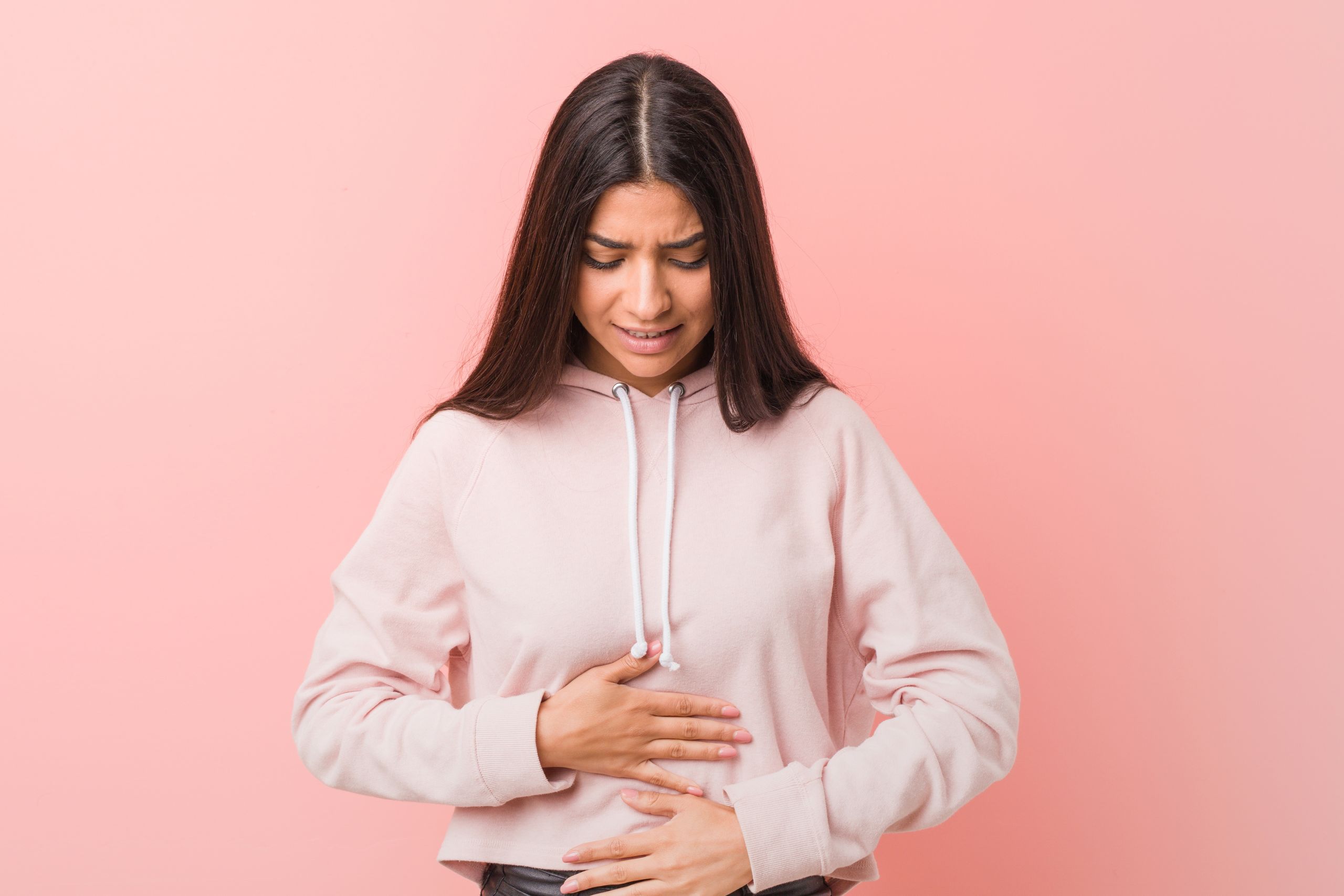
The not so great news is that once menstruation starts, it is likely that most people will experience what sometimes feels like a personal attack on their bodies for decades.
However, clinical psychologist Slindile Mbatha encourages changing one’s perspective around what is euphemistically called “that time of the month”.
“Periods are an important part of normal female anatomy development. As part of what our bodies need to do, we get a period for different stages of our lives, like when it comes to having children, if you choose to have children. I have had people tell me that it feels like a curse to them, but, really, it’s just a normal part of life,” she says.
Natasha Allie was sufficiently prepared for her period because it was a common discussion during puberty.
“My mum told me about the basics of menstruation at a very young age,” she remembers. “She had very clear tampon bias and, at school, we learnt about it too. I was told my period would be sore, and it was. I still don’t have a great relationship with my period because it just feels so unnecessary.”
She says the emotional roller coaster, diarrhoea and nausea that she has been experiencing for more than 20 years is still harrowing. Allie is especially not fond of premenstrual syndrome (PMS), which occurs up to two weeks before menstruation.
Rhodé Marshall shares her sentiments: “It makes me miserable. I’m like, why are we still going through this? I’m too old to still be having cramps!”
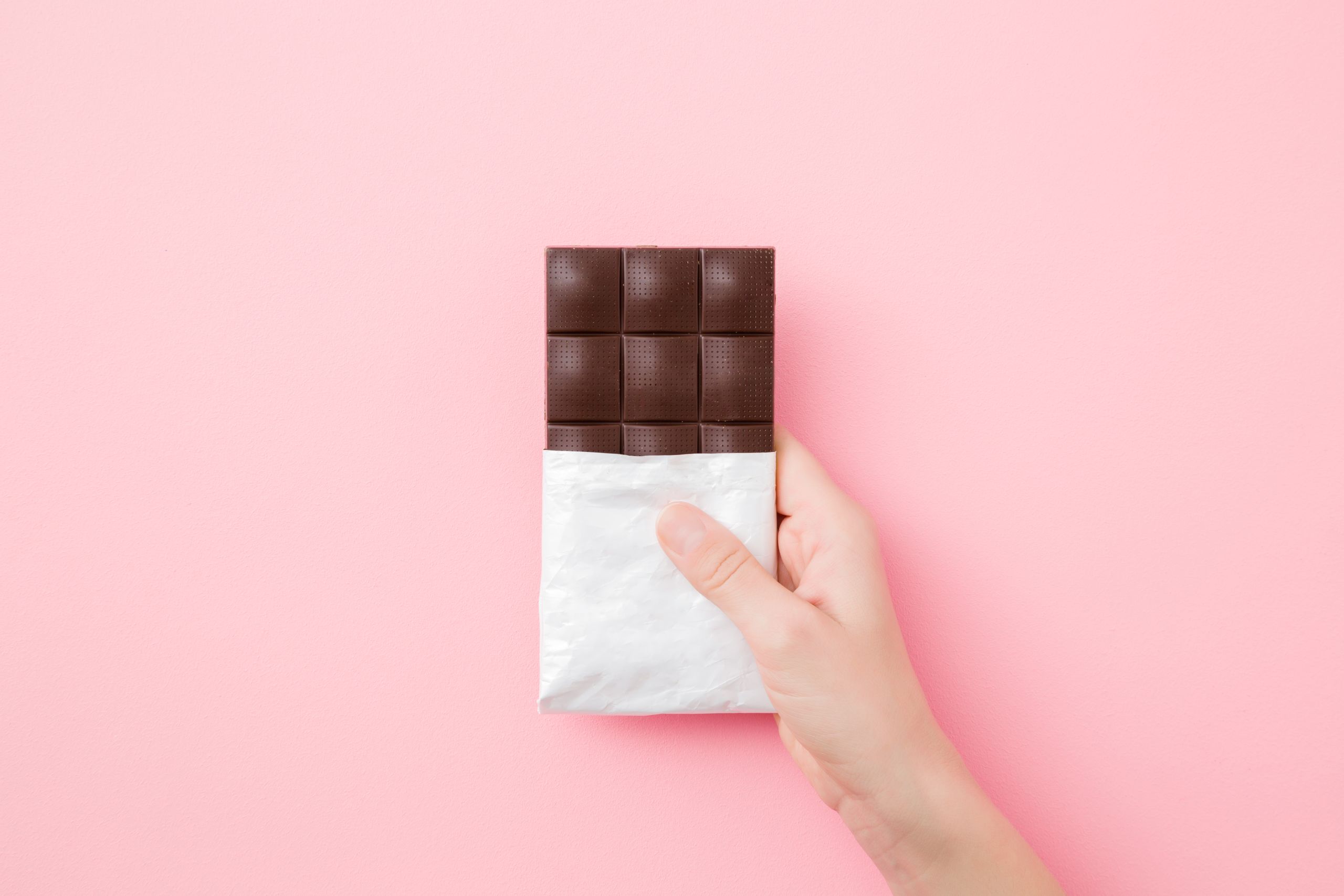
PMS symptoms include bloating, headaches, abdominal pain, irritability, tender breasts, fatigue and intense food cravings. Some people have found relief by taking a contraceptive pill.
Marshall says: “It’s very painful when I’m not on a contraceptive. When I am on a contraceptive, I only feel that way every second month. When I’m not on the pill, the cramps are insane. I cannot walk due to the pain and feel like I need to lie down. The hormones in the pill essentially help me function.”
PMS is a term that has been weaponised because it can be used as a way to dismiss someone who converses passionately. While it’s true that PMS can alter one’s emotions, using this against someone is vile.
“It makes me angry because it’s like, so what if I’m PMSing?” asks Marshall. “I’m still me. I’m not angry because I’m PMSing, I’m angry because of whatever you did. People use it as a cop-out so they don’t have to be accountable for their behaviour.”
PMS isn’t something pregnant people worry about for a few months, and an early tell-tale sign that one is pregnant is missing a period. Some people may experience light spotting or implantation bleeding, but many, like Sinovuyo Jiya, say they do not see any type of blood. Jiya says she was initially elated when it seemed like her period was late.
“I am a copywriter and was stressed because I was preparing for a pitch for a big brand, so I assumed my period was late because of stress. Stress isn’t fun, but I was so happy I didn’t have to deal with being on my period on top of trying to work on this pitch.”
Pregnancy tests from two different retailers yielded negative results and a scan at Jiya’s gynaecologist was inconclusive, so she was told to take a haemoglobin test and wait for the results.
“That was the longest time of my life. No, the longest time of my life has been raising a child for the past 11 years,” she laughs. “I was taking precautionary measures to not have a child, so if I’m being honest, I harboured a lot of resentment towards my period because I felt like it had betrayed me by just not showing up.”
Throughout her pregnancy, Jiya says she didn’t have time to be elated about not menstruating for 40 weeks because she was adjusting to the changes her body was going through. After childbirth, women will for several days experience lochia, a vaginal discharge of uterus tissue lining, mucus and blood. It may seem like menstruation, but it isn’t, and the deep red colour of the discharge will gradually get lighter.
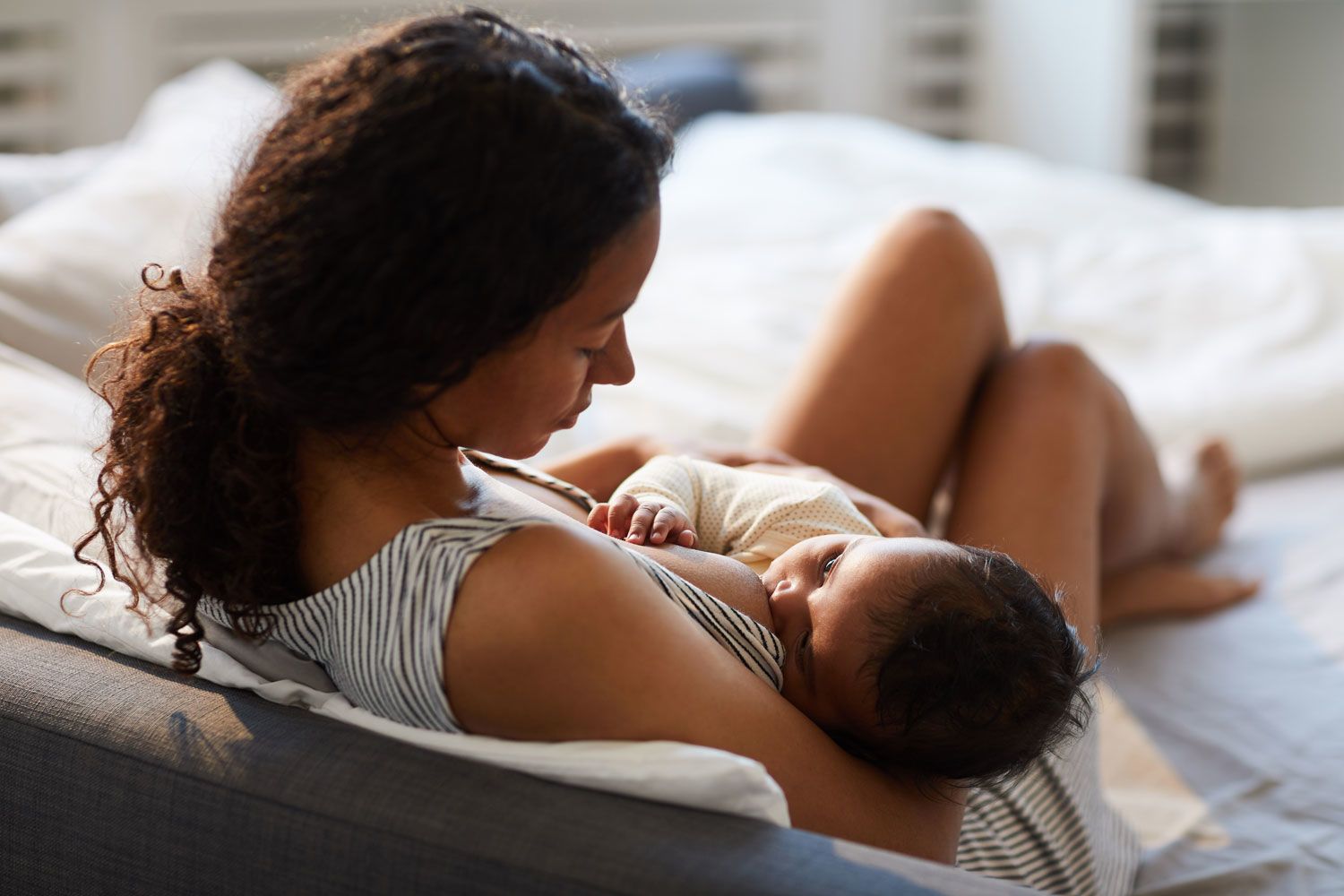
The time following childbirth is sometimes called the fourth trimester. Unless one is breastfeeding, menstruation returns six to eight weeks after giving birth. Breastfeeding can act as a natural way to avoid menstruation for longer, but breastfeeding for an extended period of time it’s often not an easy decision to make.
“I planned to breastfeed for at least a year,” says Tshego Linda. “We got to around 10 months when my nipples were feeling tender and not just because they had a tiny human using them. I also felt like I was experiencing mood swings. Seeing blood again was disappointing because it meant that the bonding I was experiencing with my child was being interrupted by the return of my period.”
While Linda didn’t seek therapy, Mbatha advises everyone should at least try to go to counselling during major life changes.
She cites menopause as one such major life change: “The menopause stage can be really difficult to deal with because some of the symptoms can feel so severe. Those symptoms can be coupled with emotional changes that can make one feel unlike themselves. So, firstly, consult a medical doctor to see if you should be on any hormone balance medication and then check in with a mental health practitioner. It’s a huge change in your life and they can help you start to feel like yourself again.”
To ask your questions or share your experiences: https://www.lil-letstalk.co.za/talk/latest
MEET THE EXPERT PANEL
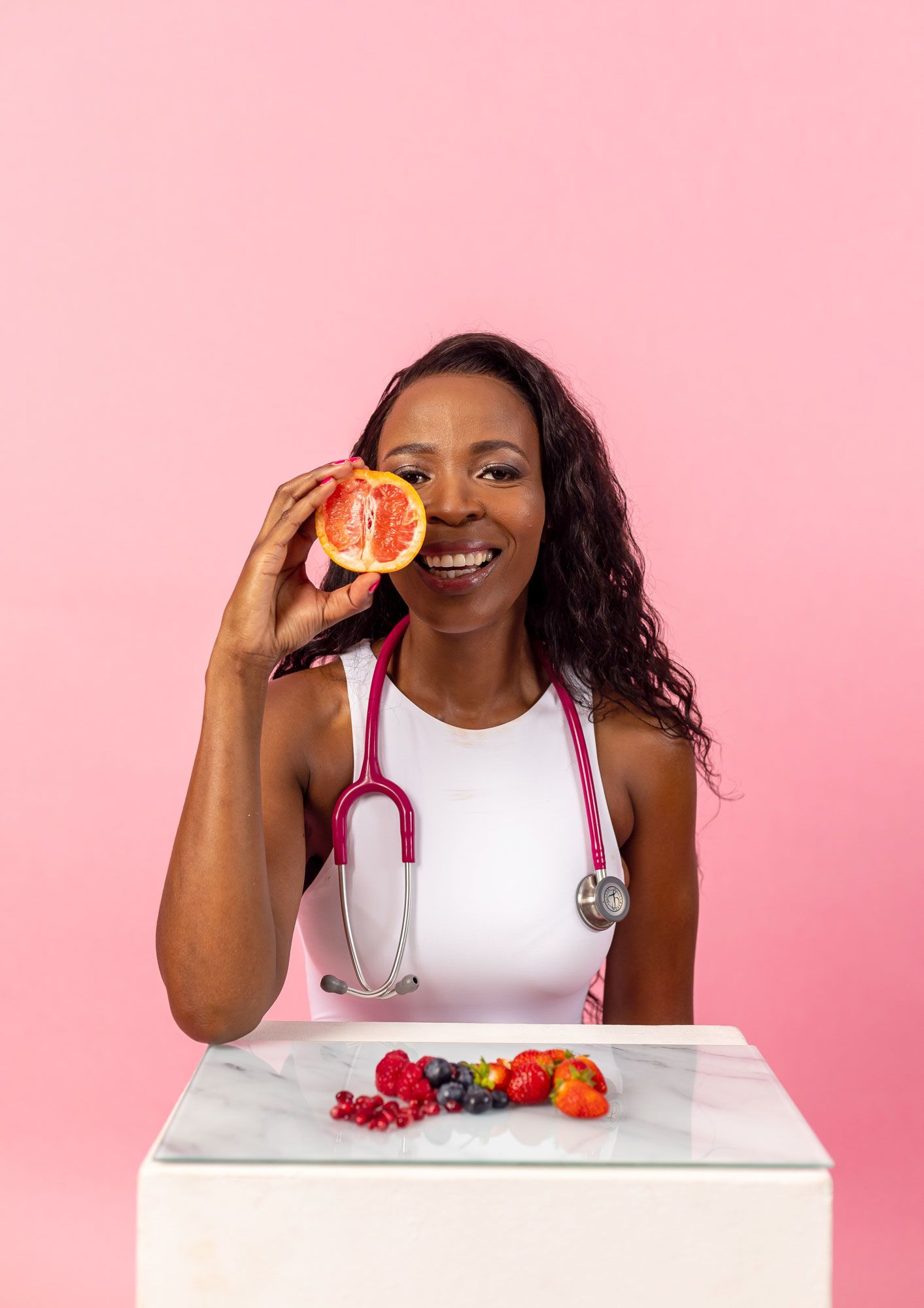
Photo by: Zeloi Agency
Photo by: Zeloi Agency
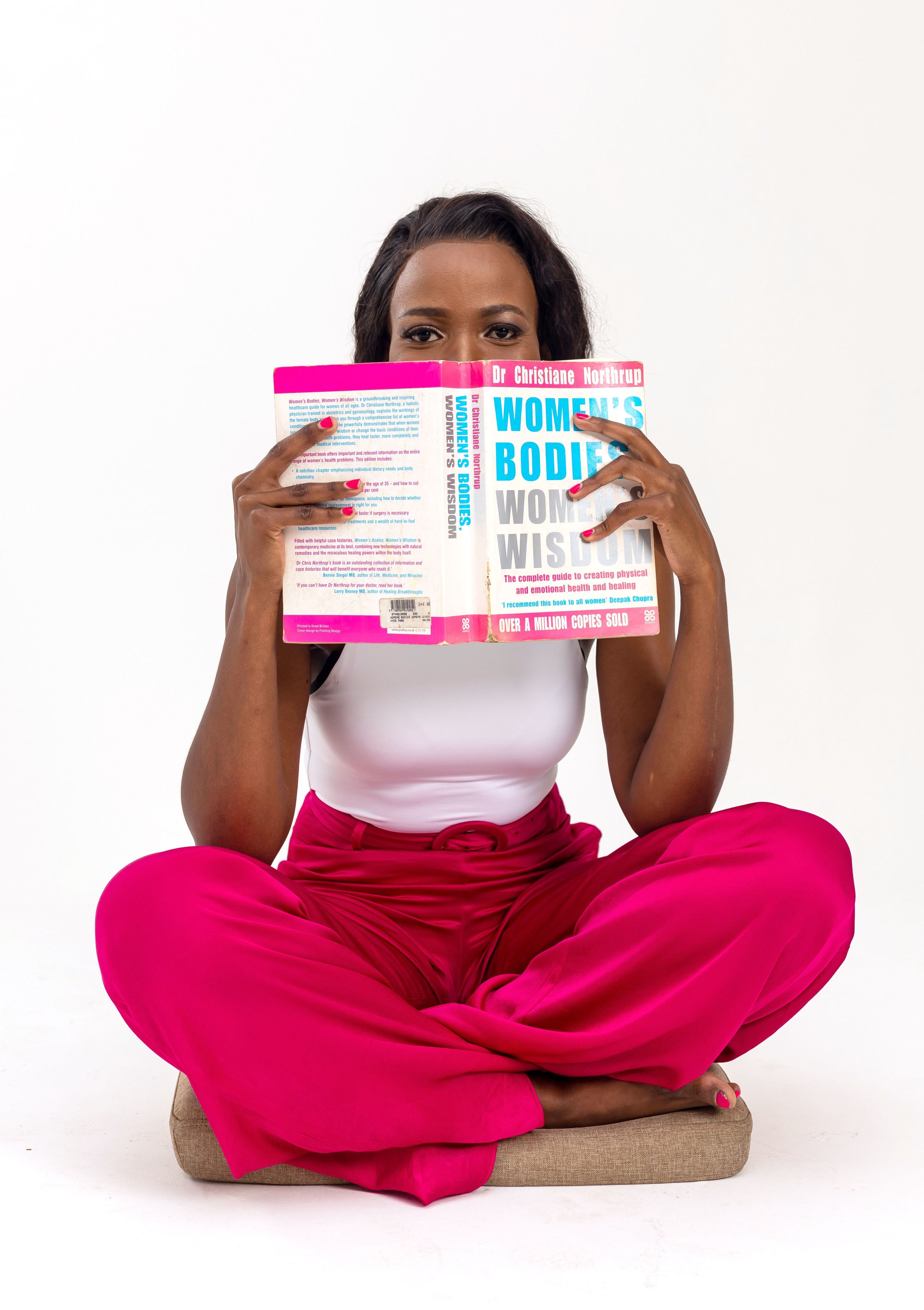
Photo by: Zeloi Agency
Photo by: Zeloi Agency
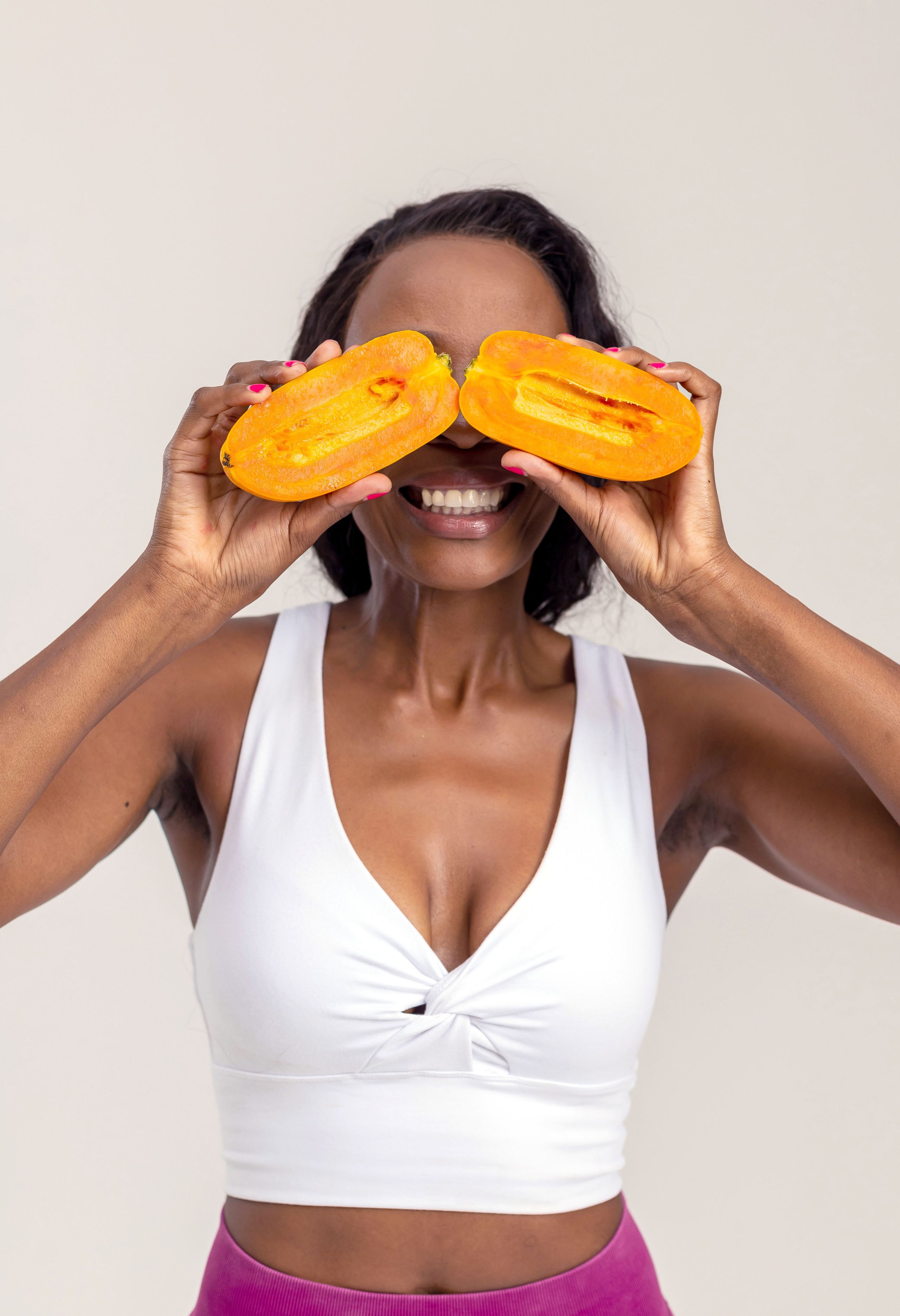
Photo by: Zeloi Agency
Photo by: Zeloi Agency
Dr Mpume Zenda, obstetrician, gynaecologist and sexologist
I am a mum, a sister and a daughter who is passionate about all things to do with women’s health and sexual and reproductive health. I am also an educator, content creator and speaker. I have an undergraduate degree (MBChB) from the University of KwaZulu-Natal Nelson R Mandela School of Medicine and a post-graduate degree specialising in obstetrics and gynaecology FCOG (SA) from Wits University. I am also a sexual medicine specialist (medical sexologist) and Fellow of the European Committee of Sexual Medicine.
I currently serve as an obstetrician-gynaecologist-sexologist at Mediclinic Morningside and as a district obstetrician-gynaecologist for West Rand District Health in Johannesburg. I am also a prolific contributor to multiple media platforms, including social media, TV, radio and print.
What, in your experience, are the most damaging myths around menstruation?
The worst myths are those that attack a woman’s character and self-esteem. For example, many women think they are “dirty” when menstruating. The myths are imbedded in our sociocultural norms, so girls are taught that, once they begin menstruating, they must sit a certain way, dress a certain way and that boys are bad. Then there are those who withhold and deny access to accurate information and honest conversations, believing that talking about menstruation is taboo, and will encourage children’s curiosity to explore sexually.
What do you hope is the outcome of putting together a taboo-busting platform such as this?
I hope that this platform will, through information and sisterhood, heal the wounds for women who have had unpleasant and traumatic experiences around menstruation. I hope that it will create an attitude of openness and honesty, and validate every menstruator’s story, and that it will equip every young girl as they enter womanhood to have a sense of being celebrated rather than feel shame.
How has your own experience of your period changed over the years as you’ve gained insight into the subjects surrounding it?
The more I’ve understood my body, my cyclical nature and the changes that come with it, the easier it has been to love myself. It has also allowed me to have more compassion for my fellow menstruators, leading to the desire to enrich as many women as possible with knowledge about their bodies. Most importantly, it has given me an opportunity to heal my experience with my mum around the difficulties we had navigating the concept of my coming of age.
There is still a lot of shame and secrecy around vaginas in general and periods specifically. What piece of advice would you give to parents starting this journey with their children who menstruate?
This is such a monumental milestone and you don’t have to be an expert on the subject –your kids just want to know that you are a safe space for them to come to. You are their greatest influencer, so do not shy away from the conversations – listen to them, give them affirmation and love them. If in doubt, ask for help.
How important is it to include men in these conversations?
It is pivotal to include men in the subject of menstruation and teach young boys how to respect and protect women. Dads, brothers and uncles must be equipped with information so that they are able to meaningfully care for their loved ones.
Ask Dr Mpume Zenda your menstruation question on Lil-Lets Talk here: bit.ly/LLTDrGynae
Candice Langford – physiotherapist
I am a University of Cape Town-qualified physiotherapist with a special interest in the niche market of pelvic and sexual health. In a world where no one talks about these supposed taboo topics, I yell from the roof tops and pop up on Instagram feeds to talk about everything related to pee, poo, pleasure, pain and periods. My goal is to empower through education while encouraging a shameless narrative on my Instagram platform @nurtureyourvagina. I share an abundance of information, such as my daily Quickies videos, and run regular webinars and exercise classes.
When not treating patients in my Ballito practice at Health Matters or furthering my education in the trauma and psychosexual arena, I either have my head stuck in neuroscience resources or anything with the word ‘vagina’ on the cover. For pleasure (excuse the pun), I enjoy heading to the beach and capturing my well-known “in case you haven’t seen the sea today” snapshots after a run or throwing a punch or two at my boxing instructor.
You can join in the conversations you wish you’d had growing up (and may still cringe over) by following @nurtureyourvagina and help her on her mission to break down barriers and normalise the narrative about holistic pelvic and sexual wellbeing.
There is still a lot of shame and secrecy around vaginas in general and periods specifically. What piece of advice would you give to parents starting this journey with their children who menstruate?
Pelvic and menstrual health are riddled with shame, fear and anxiety. I’d like to start by acknowledging that these feelings are not limited to prepubescent children, but that you may also be feeling these emotions when thinking of having “the talk”, and that is okay! We don’t become experts by having a period, and you may need to start by doing some research on the topic of pelvic and menstrual wellbeing to improve your confidence.
I encourage parents to:
- Use correct anatomical terms from a young age (for example, vulva and labia) as this reduces stigma.
- Encourage body positive language as opposed to reinforcing body disgust. For example, period blood is not “gross”.
- Make yourself available for conversations. If you consistently reply to your child’s questions with “you’ll know when you are older”, they may look elsewhere and expose themselves to misinformation. If you don’t know, say: “I don’t know, but let's look it up.”
- Buy a reputable book on the subject, place it on the bookshelf and keep an eye out for when it has moved, as this is your opportunity to ask if they enjoyed the book.
- Talk about your menstrual experiences as this reduced fear. Discuss changes in mood, bloating, cramps, period poops and how much blood to expect, and unwrap and explain tampons and pads.
Ask Candice Langford your sexual health question on Lil-Lets Talk here: bit.ly/LLTCandiceLangford
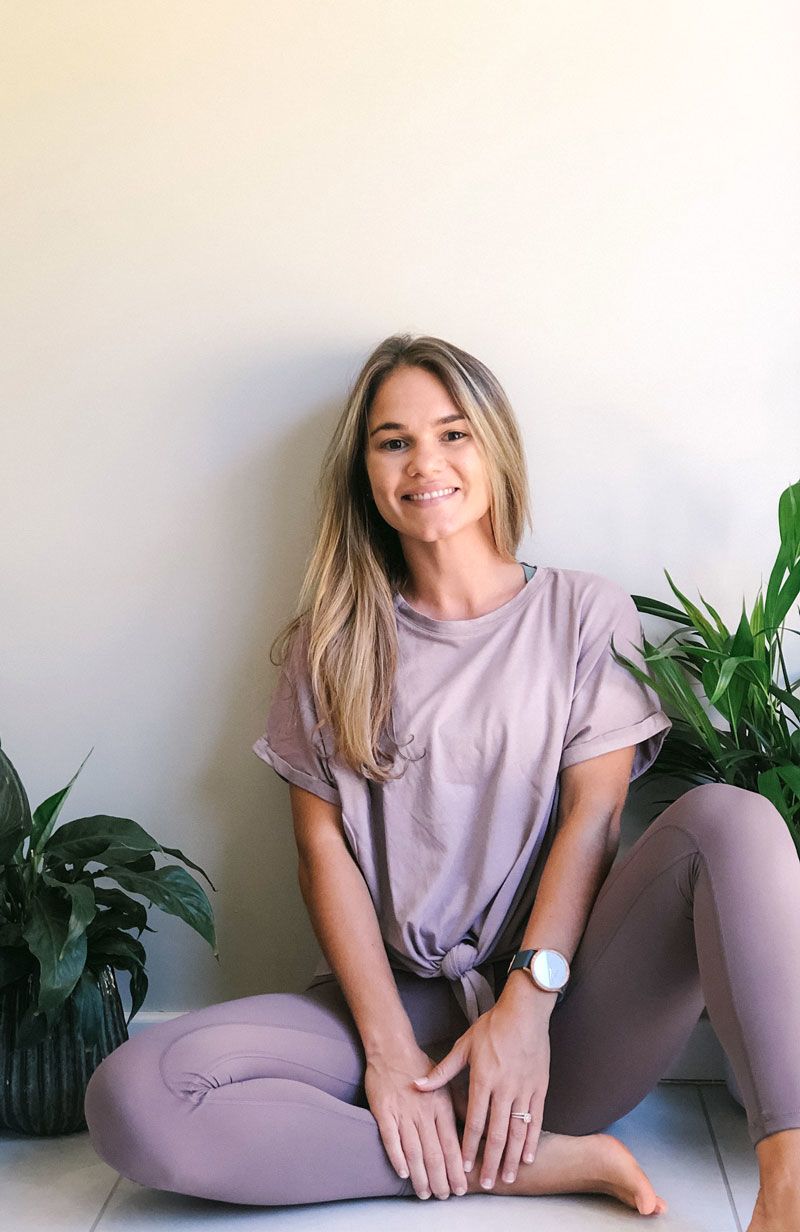
Photo by: Courtney Warren
Photo by: Courtney Warren
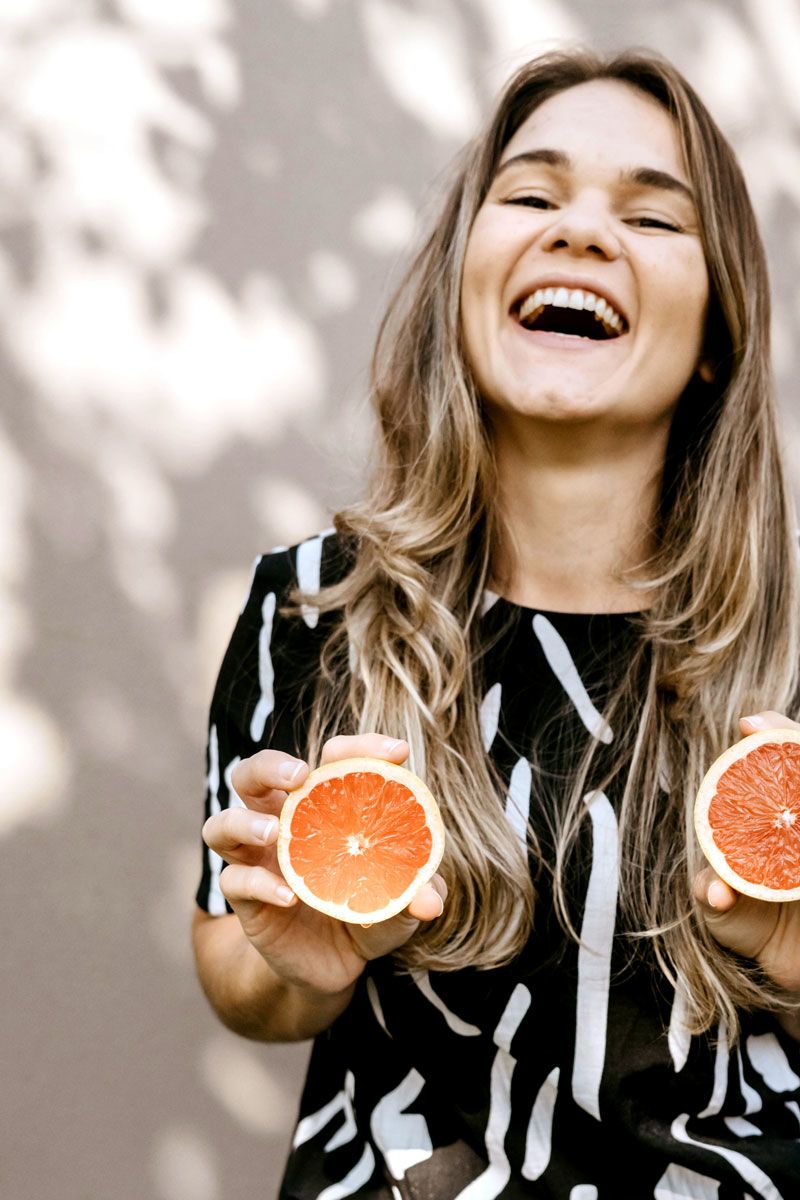
Photo by: Courtney Warren
Photo by: Courtney Warren
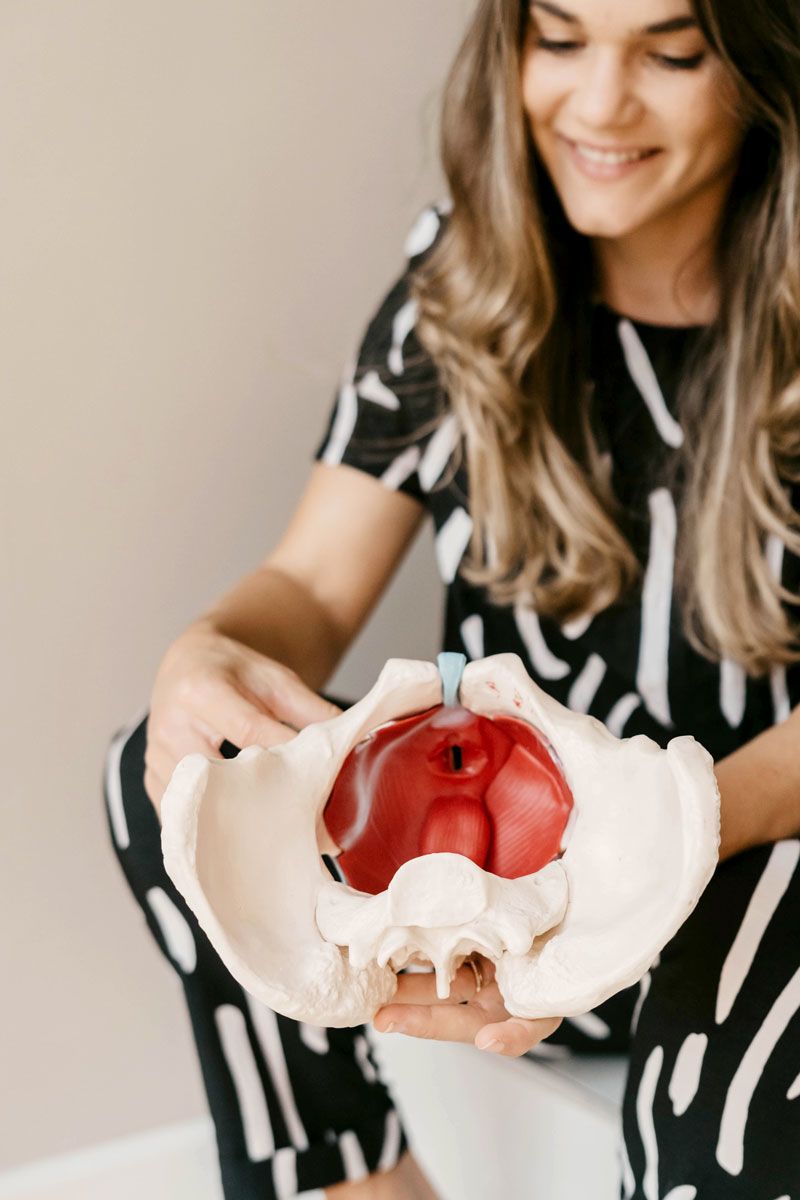
Photo by: Courtney Warren
Photo by: Courtney Warren
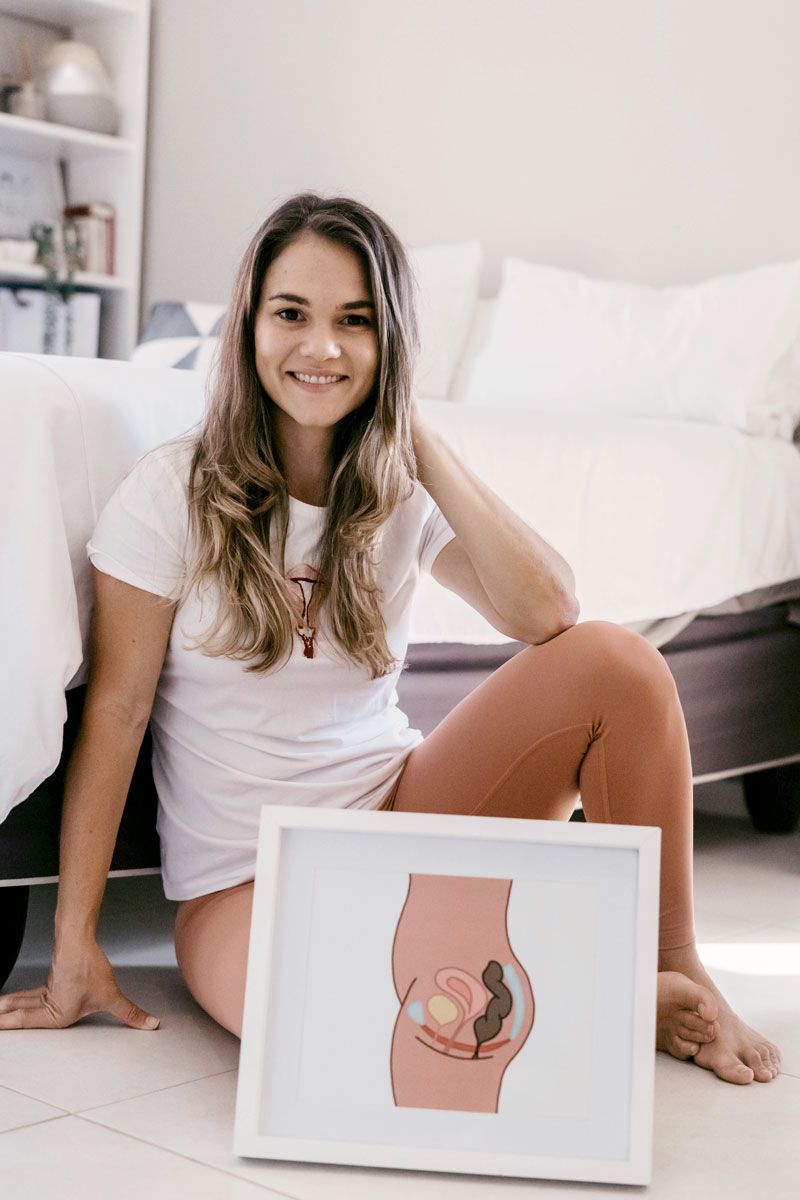
Photo by: Courtney Warren
Photo by: Courtney Warren
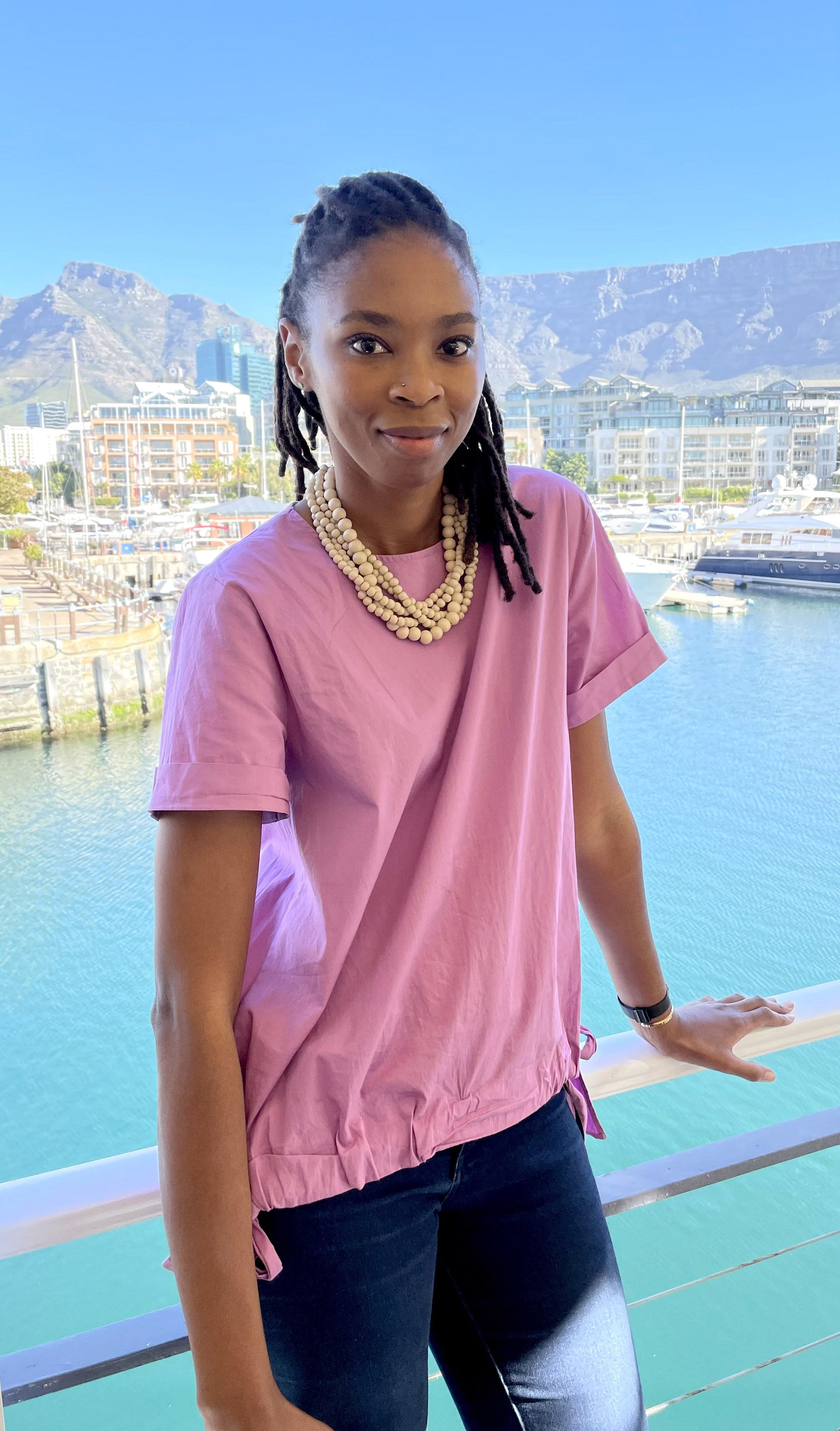
Photo by: Nomonde Nomdzinwa
Photo by: Nomonde Nomdzinwa
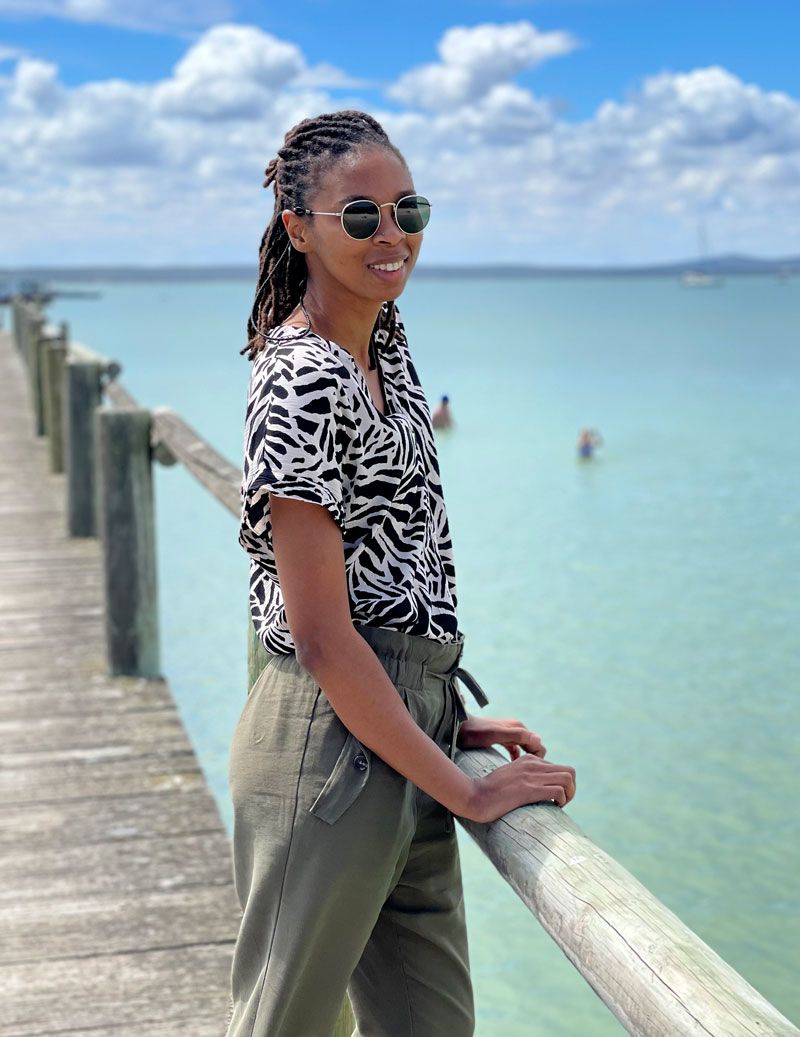
Photo by: Nomonde Nomdzinwa
Photo by: Nomonde Nomdzinwa
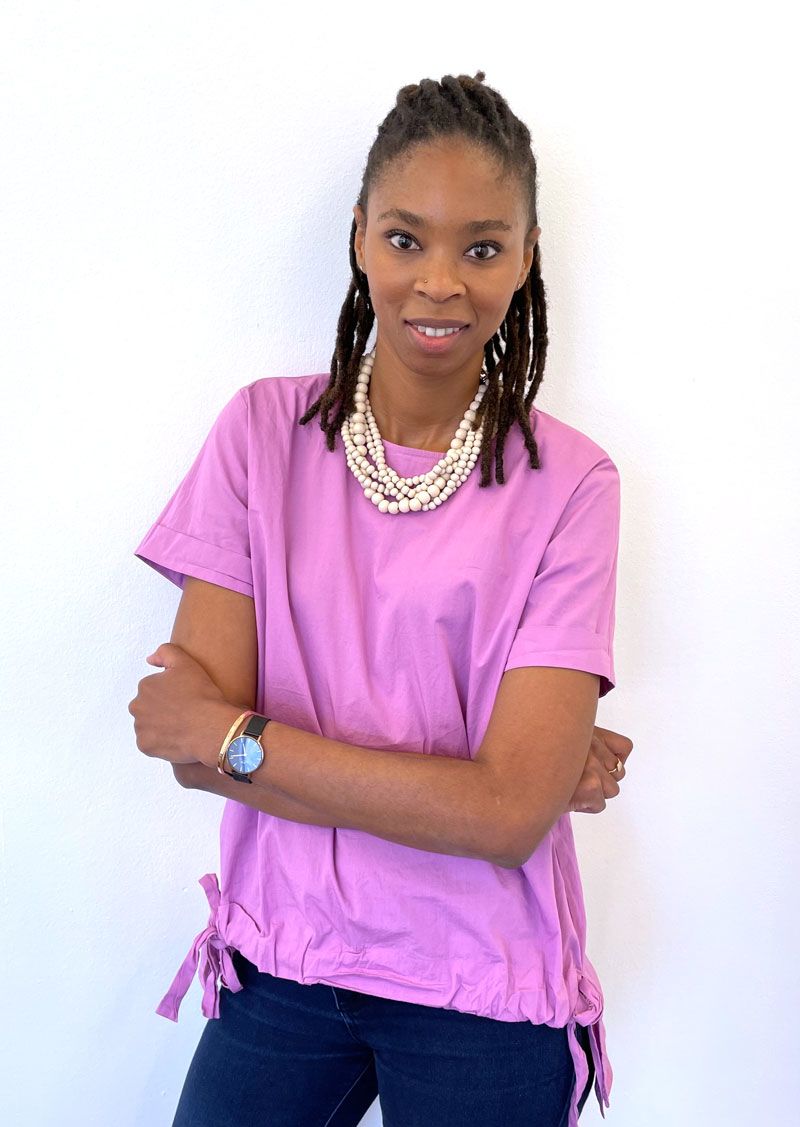
Photo by: Nomonde Nomdzinwa
Photo by: Nomonde Nomdzinwa
Slindile Mbatha – clinical psychologist
I am a clinical psychologist in private practice in Cape Town. I have a keen interest in anxiety disorders, mood disorders and trauma. Before venturing into private practice, I worked for the South African Military Health Service for four years completing my internship, as well as my community service in independent clinical work. I gained experience working with adults and children in the treatment of psychiatric disorders and addressing the impact of medical illnesses on mental health. During this time, my work also started to focus on paediatric, adolescent and maternal mental health. In my private practice, I provide education and support services to organisations and individual clients from diverse backgrounds to address mental health needs.
What, in your experience, are the most damaging myths around menstruation?
There are quite a few that come to mind, but I will highlight three. The first is the myth that menstruation is dirty or shameful. As such, anyone menstruating can be ostracised or dismissed, which can make menstruation a time that is deeply isolating and anxiety-provoking. There is nothing dirty and shameful about regular bodily processes. Secondly, there is also the myth that when one is moody or upset, one must be menstruating. This can be very dismissive of legitimate feelings people experience in the moment and, simultaneously, can minimise significant affective changes that can happen around menstruation. The third myth is that all women have periods. In reality, not all women will menstruate (for various reasons) and transgender men may also still menstruate. It is important to also take this into consideration when understanding who menstruators can be.
What do you hope is the outcome of putting together a taboo-busting platform such as this?
I hope that this helps to lessen the shame and stigma that is associated with menstruation. I hope that many will come to find answers that they need to better understand their minds and bodies, and I especially hope that it helps all those on the platform to realise that they do not ever need to feel alone, no matter what stage in life they are at.
How has your own experience of your period changed over the years as you’ve gained insight into the subjects surrounding it?
In my younger years, I definitely felt shame and fear around it. It was incredibly anxiety-provoking, and I was very resentful of having a bodily experience that was so out of my control. Plus, having little information about what was happening probably made it worse. As I grow older, I’ve learnt to be much more attuned to my mind and body. As I've learnt more from family members, friends and my doctors as they share their experiences, it's made a huge difference in my life. I don't feel the same shame about my period or whatever comes with it. And although I may still have difficult days, I am much better prepared.
There is still a lot of shame and secrecy around vaginas in general and periods specifically, what piece of advice would you give to parents starting this journey with their children who menstruate?
There are so many great resources for parents including books and videos to help get the conversation going in an age-appropriate way. So, don't fear that you have to do it alone. It is important to normalise speaking about the body at different stages of children's lives as they become curious. Try to not avoid or shut down the conversations when they occur. Instead, see it as an opportunity to equip them with accurate and helpful information. Also, I would encourage parents themselves to be more aware of their own feelings around periods (and associated things like buying sanitary products) and also address shame or stigma they may carry. If you feel comfortable, it will probably be easier to help your child feel comfortable too.
How important is it to include men in these conversations?
I think it is super important! Periods shouldn’t be something that only women are educated about. Men becoming part of the conversation can help with increasing empathy and support inclusiveness. Men can be allies in the fight against stigma and shame in everyday situations. Lastly, men across all spheres of influence can join the conversation as human rights partners and advocates to ensure fair treatment, and equitable access to sanitary products and health resources for those who need it. It won't happen unless we all work together.
Ask Slindile Mbatha your menstruation question on Lil-Lets Talk here: bit.ly/LLTMentalHealth
Genevieve Putter, postpartum doula
I am the founder of The New Normal, an Instagram community I started nearly three years ago due to the severe lack of support, understanding and information about the postpartum period. I was inspired after the birth of my son five years ago when I experienced a postpartum unravelling due to the pressures that came with new motherhood and I was diagnosed with a perinatal mood and anxiety disorder.
I started treatment that included psychiatric medication and therapy. Over the years, I have also included a range of alternative modalities in my recovery journey. I am now a certified postpartum doula (wombs and innate traditions), writer and content creator. I have a master’s in philosophy from the University of Cape Town’s Centre for African Studies, and I have a special interest in societal narratives around motherhood and parenthood.
Currently, I offer various types of digital postpartum support. My goal is to nurture, educate and hold space for new mothers during the postpartum period, and to empower them and their families with resources and information so they can make the best decisions for their health.
I have a special interest in maternal mental health and am passionate about mother-centered/birthing person-centred care, which I believe is a concern for society as a whole. When mothers/birthing parents thrive, their families do too, and so does society. I am thrilled to be a Lil-lets super responder and to be able to support all menstruating people, especially those who are in the post-partum period who are not only navigating life with a new baby, but are also dealing with the huge physical, emotional and mental changes that this time brings.
What, in your experience, are the most damaging myths around menstruation?
I’d say the most damaging myth is the idea that bleeding and period blood is associated with being unclean or unhygienic. This notion is so pervasive and is one of the many reasons that for centuries and the world over, there’s been so much shame associated with menstruation; that it is something that needs to be hidden or that cannot be spoken about.
My hope is that we can shift this through education, not just for those who identify as young girls, but for those who identify as young boys too. We also need to realise that we can’t talk about menstruation in isolation – we need to also talk about what its purpose is, which is to allow women and those with uteruses to give birth.
There’s this perception that youngsters shouldn’t be brought into discussions about pregnancy, birth and postpartum when talking about menstruation, like it’s too much information for them. But the earlier we start talking to young people about the holistic picture of menstruation and its purpose, the better. Menstruation is a sign of a healthy reproductive system that is geared towards giving life, and this is something to be proud of – we shouldn’t be made to feel ashamed of it.
Another myth that I think is important, especially for the postpartum period, is that if you have lactation amenorrhea, you cannot fall pregnant. Sure, breastfeeding does ensure some level of contraception because the hormones involved stop the birthing parent from getting their period, but it’s not a foolproof solution to contraception.
What do you hope the outcome of putting together a taboo-busting platform such as this will be?
My hope is that it makes not only information about reproductive health way more accessible, but also allows for a fuller picture of options available to menstruators to take charge of their health. Basically, that it empowers women and those who identify as such to make informed choices about their health and wellbeing.
How has your own experience of your period changed over the years as you’ve gained insight into the subjects surrounding it?
I developed polycystic ovarian syndrome (PCOS) at 19, was put on the contraceptive pill and stayed on it for 17 years. After my husband and I got married, I came off the pill as I knew I would need time to address this condition in more holistic ways to prepare for having a baby. I knew it was going to be difficult, but I did a lot of research and consulted with integrated health practitioners. Someone suggested I try acupuncture and change my lifestyle habits – eating more fruit and vegetables, cutting out processed sugar and refined carbs, as well as committing to regular yoga. After eight months of not having a period and experiencing a lot of anxiety about it, I started ovulating again and menstruating monthly. A year later and after two months of trying to fall pregnant (we were still using condoms until then), we did!
After the birth of my son and while breastfeeding, my period returned after six months and, for the most part, has been like clockwork since then (four and a half years). I still have polycystic ovaries, but I’ve been able to manage the condition by focusing on my lifestyle habits like my diet, stress management and sleep. More recently, during 2020, I noticed my periods were coming earlier every month, so I went to see my gynaecologist and she discovered an ovarian cyst (different to PCOS) on my left ovary. On her recommendation, I went back to see my acupuncturist and after a few sessions, my period returned to its usual clockwork schedule.
I really appreciated this suggestion because she could’ve decided on surgery, but instead provided me with an alternative that was less invasive. I feel like this is such an insight into the needs of women when it comes to our healthcare providers – that they provide us with a host of different options for us to make a decision about our health that aligns with our values. Obviously, this is within the context of it not being an acute condition and needing emergency intervention. I’m a believer in an integrated approach to healthcare, one that can include both medical and traditional modalities.
There is still a lot of shame and secrecy around vaginas in general and periods specifically. What piece of advice would you give to parents starting this journey with their children who menstruate?
Make them feel proud of this incredible gift – to bring life into this world! Educate and equip them (if possible) with what options are available to them when they get their periods, like Lil-lets’ full range of pads and tampons. But also explain to them what else happens to make this life-giving miracle occur, that hormones are involved and that this can mean that they sometimes feel a bit low in energy or feel down, and that it is normal to get cramps, pains and tenderness in the lead-up to their period.
While I think it’s important to acknowledge the miracle of what menstruating is, we also need to be real about it as it has other implications that are uncomfortable (tender breasts, bloating, cramping, feelings of depression and low energy). If we educate youngsters about why this happens, we give them permission to accept that menstruating can be challenging and they can be more prepared to ride the waves of the monthly cycle.
It’s the same with pregnancy and the postpartum period – those of us who’ve been through it know how amazing and beautiful it is, but if we don’t acknowledge how hard it can also be, we’re not preparing youngsters for the full spectrum of the journey and so when things don’t fit the narrative of “pregnancy and motherhood are a beautiful and sacred time”, birthing people think that there is something wrong with them or that they’re not doing a good job.
I also think that this responsibility lies not just with parents, but also with teachers and schools. They need to be involved in destigmatising menstruation, and be honest and real about the challenges of pregnancy, birth and postpartum. They should not only aim to educate pupils who menstruate, but also non-menstruating pupils.
How important is it to include men in these conversations?
It is of utmost importance! If young boys and men are brought into these conversations early on, it could make a world of difference to destigmatise menstruation and the shame associated with it. There is a huge focus on women’s empowerment on all levels – our health, our careers and our sovereignty of our bodies – but this needs to extend to boys and men too.
How are we empowering young boys and men to be better and do better?
They need to be brought into these conversations too, even though they may not experience them first hand. Many will most likely be in a partnership one day and love someone who does menstruate. They may also be parents one day of children who will one day menstruate and give birth. Destigmatising menstruation and all things related to women’s reproductive health isn’t just women’s work, it needs to be a societal endeavor for real change to happen.
Ask Genevieve Putter your 4th trimester question on Lil-Lets Talk here: bit.ly/LLTDigitalDoula
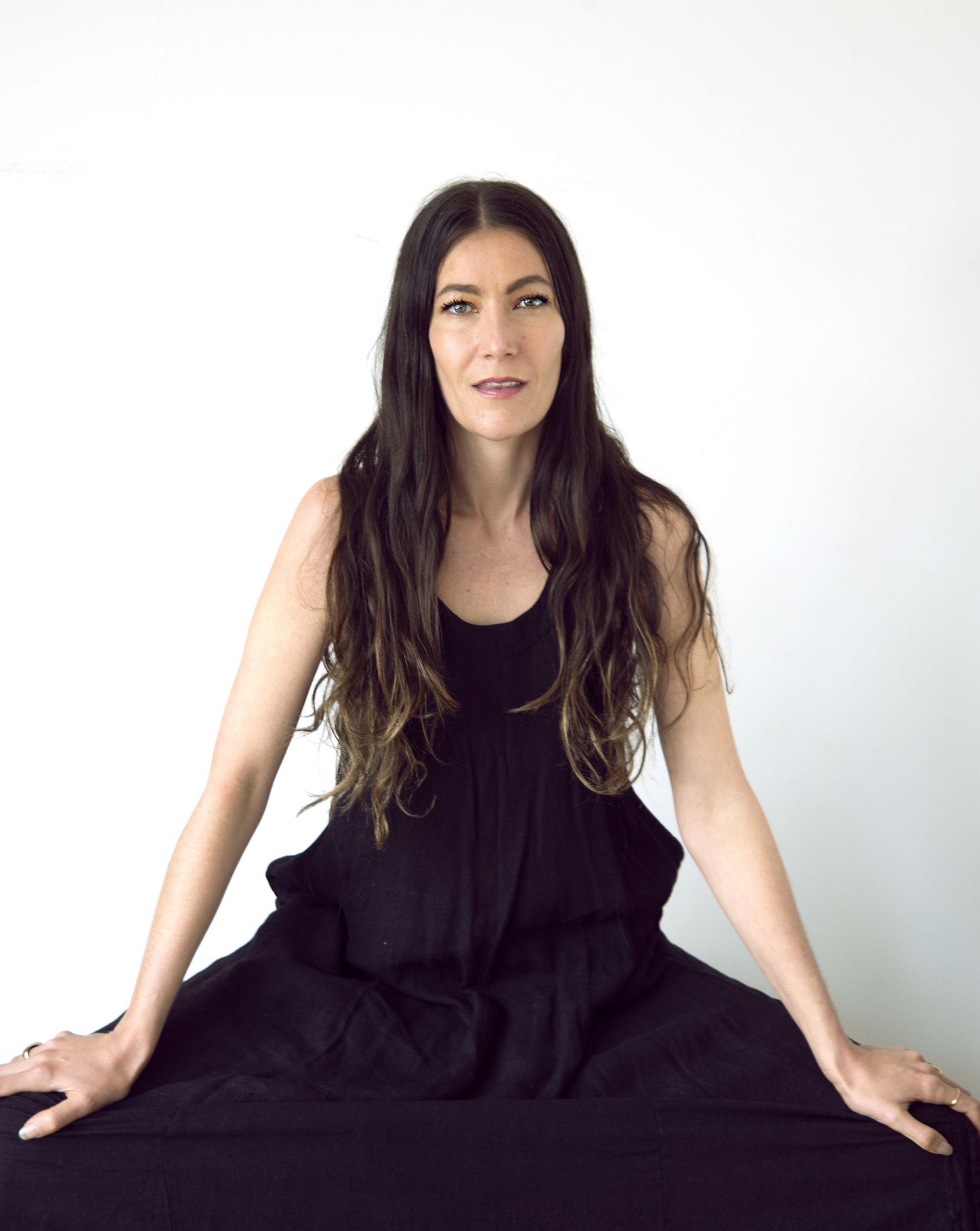
Photo by: Sarah Nankin
Photo by: Sarah Nankin
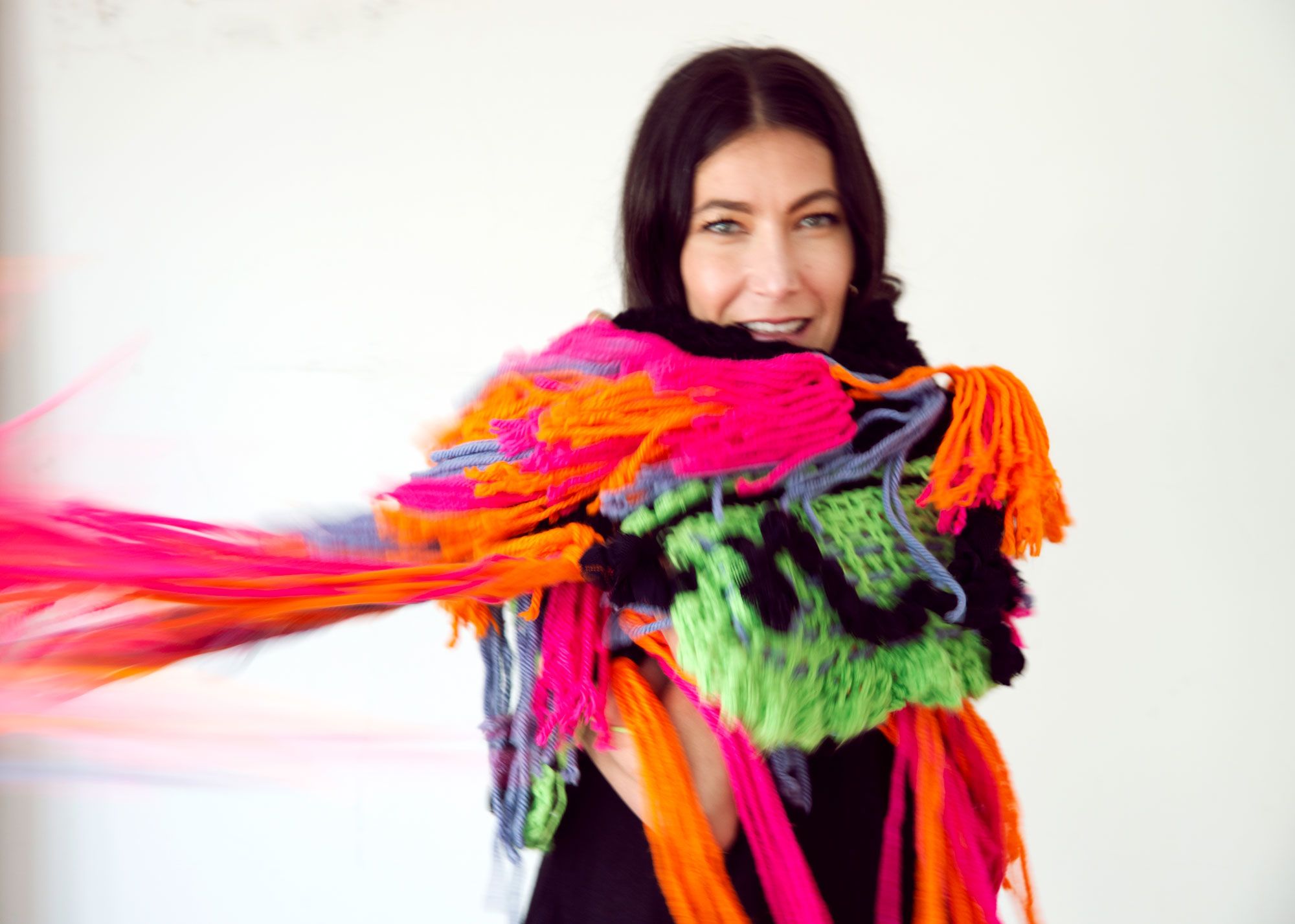
Photo by: Sarah Nankin
Photo by: Sarah Nankin
Sharing truth with the collective energy of shared experience
It may be 2021, but periods are still shrouded in secrecy and shame. Language around menstruation and issues related to it is often euphemistic, making it hard for people to understand exactly what menstruation entails.
And it’s not just periods: South Africans are simply not talking about menopause, birth, the postpartum period and contraception, never mind the impact of all of this on mental health, leaving people without the information they need to prepare and make informed decisions about their health. That’s why one of our primary goals on Lil-lets Talk is to demystify everything from the menstrual cycle to menopause.
Which is not to say the Lil-lets Talk platform is exclusively for younger users: we dispel the myth that we suddenly “know more” as we get older – pregnancy, miscarriage, menopause and contraception are still shrouded in mystery and disinformation. By casting a light on the different experiences our bodies go through as we age, we can sift through a sea of taboos and untruths to unearth the facts. Users can choose to remain anonymous and can ask questions and share their experiences without fear of being judged or exposed.
Whether it’s explaining how to insert a tampon correctly for the first time or sharing our experience with periods after birth, we meet users at the life stage they are in and address their concerns with facts, experience, empathy and understanding. This is vital in a society where topics as vastly different as periods and pregnancy loss are equally treated as off limits.
Sometimes we commiserate with users over painful periods; other times we share stories about contraception, and which methods have and have not worked for us. Lil-lets Talk is a place to plug into when the pregnancy guide books aren’t answering your questions, or when you are feeling a little uncertain about the sudden change in your period. It’s powered by the collective energy of shared experience, and the impact that feeling heard and being informed has on our users’ confidence and wellbeing.
Megan Ross is Lead Moderator on the Lil-lets Talk platform https://www.lil-letstalk.co.za/
Photo: Skye Cronje
